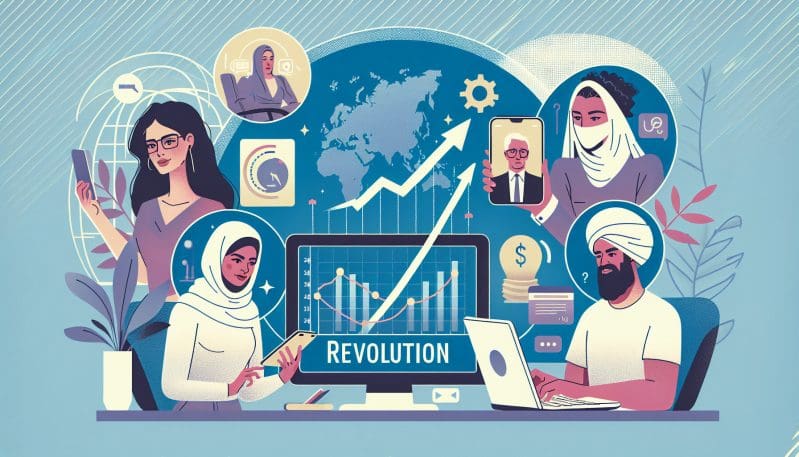Remote Revolution: Bridging or Widening the Economic Gap?
- Home
- Remote Revolution: Bridging or Widening the Economic Gap?
- Editors Desk
- January 11, 2024
- 0 Comments
As we stand on the precipice of a remote work revolution, the impact on economic disparities is a pressing issue that demands our attention. In a world that grows more digital by the day, the traditional confines of the office are rapidly dissolving, giving rise to a new era of workplace flexibility. However, with this seismic shift comes a critical question: Will the remote work movement bridge or exacerbate economic inequality?
Remote work has the potential to democratize employment, offering access to job opportunities that were once geographically bound. No longer are workers tethered to major urban centers; technology has unshackled them, providing the freedom to contribute from virtually anywhere. This paradigm shift holds the promise of leveling the playing field for individuals in rural or economically disadvantaged areas—who previously faced insurmountable barriers to high-paying jobs—now only a click away from the digital workspace.
Yet, this rosy picture obscures a harsher reality for some. The burgeoning remote workforce is precariously balanced on a digital divide. Without adequate access to technology, high-speed internet, and digital literacy, a significant portion of the population risks being left behind. The disparity in digital infrastructure between urban and rural communities, coupled with an education system that may not impart the necessary skills for remote work, threatens to widen the economic gap instead of closing it.
This is where No Worker Left Behind (NWLB) steps in, armed with a vision to ensure that the remote work revolution is inclusive. To address the multifaceted challenges posed by a growing remote workforce, a triad of strategies must be implemented: government policy, corporate responsibility, and educational initiatives.
Through advocacy and collaboration with policymakers, NWLB champions the expansion of broadband infrastructure to every community, ensuring the foundations of remote work are solid and widespread. Government subsidies to underwrite the cost of technology for low-income households could also play a pivotal role in promoting equality in the remote workforce.
Corporate responsibility is equally crucial. Companies embracing remote work must recognize their role in fostering an inclusive work environment. This includes offering training programs that equip employees with the skills needed to navigate remote tools and platforms effectively. Furthermore, businesses can partner with organizations like NWLB to create apprenticeships and internships that provide on-the-job training for remote roles, particularly targeting underrepresented communities.
Lastly, educational initiatives are the bedrock of long-term success in a remote work landscape. NWLB works with educational institutions to integrate remote work competencies into the curriculum, ensuring that all students—regardless of socioeconomic status—are remote-ready. This includes not just the hard skills, like computer literacy, but also soft skills, such as effective online communication and time management.
As the world leans into the remote work trend, the role of NWLB becomes ever more critical. Ensuring that no worker is left behind means taking proactive steps to bridge the digital divide, advocate for inclusive policies, and create a culture of continuous learning and adaptation. By harnessing the collective efforts of governments, corporations, and educational organizations, we can diminish economic disparities and ride the wave of the remote work revolution towards a more equitable future.
The remote work era is upon us. The choices we make today will determine whether it will be a catalyst for greater economic equality or a harbinger of widening disparities. NWLB stands ready to lead the charge, ensuring that the future of work enfranchises everyone, not just the privileged few. Join us as we pave the way for an inclusive, empowered, and connected workforce.
Choose Layout
Main Color Scheme
- RTL Version
- LTR Version

